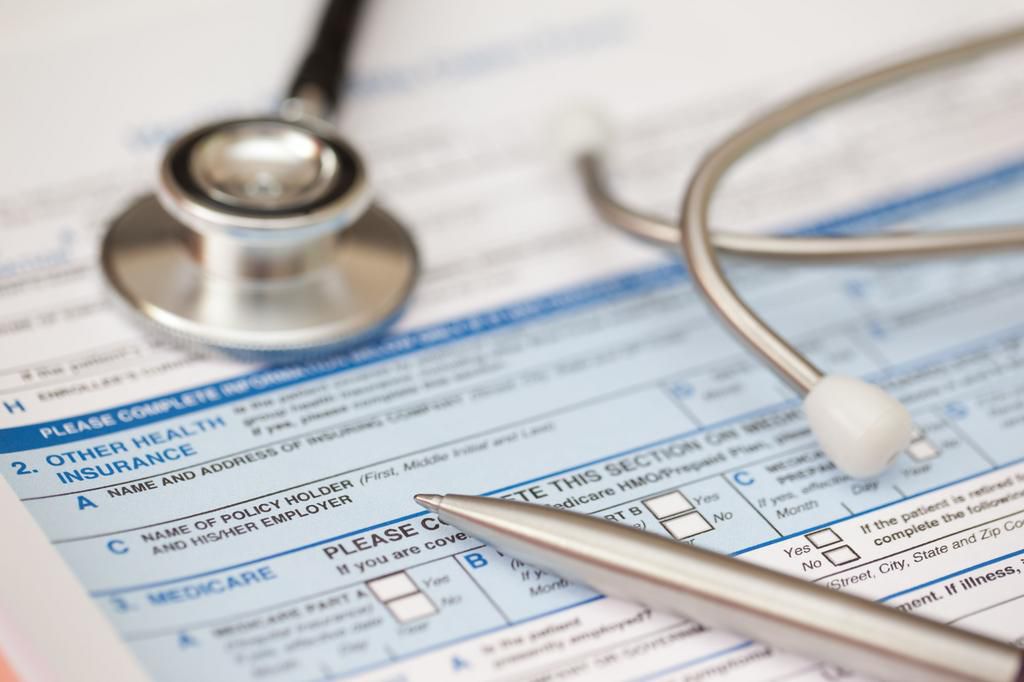What the Health? A Layman's Guide to the Confusing World of Healthcare Insurance
)
Its also very necessary. And taking some time to further your understanding of health insurance can have major payoffs.
Consumers can leave hundreds or even thousands of dollars on the table by getting this choice wrong, says Amanda Starc, Ph.D., a professor who studies health economics at .
To help you get it right, we hit up the experts to address some of the most common healthcare insurance questions and provide, for once, some clear, concise answers.
What is a deductible?
A is the amount you must pay for healthcare services before your plan actually kicks in. So, if your deductible is $1,500 (about the offered through an employer) your plan wont pay for care until you spend that much on covered services.
In , including all plans on the , the exception to this is preventive services. These are frequently covered even if you havent met your deductible yet. (Dont worry, well get to preventive care in a minute.)

What is a premium?
This is the actual cost of your plan. Usually, you or your employer will pay your monthly, quarterly, or yearly. Your premium is different than your deductible and payments toward your premium dont count towards your deductible. Good question (and nice try), though.
What is a co-pay?
A co-payment is the fixed cost of a particular covered healthcare service, aka that fee you pay walking out of the doctors office. The amount varies depending on the service - $20 for your primary physician and $40 for a specialist, for example.
This is, confusingly, not the same as co-insurance. Co-insurance is a percentage - . Say your coinsurance is 20 percent and your annual physical would otherwise cost $200. Assuming youve met your deductible, youd pay your copay plus $40 - your 20 percent coinsurance.
All health plans are required to provide a summary of benefits and coverage, says Sabrina Corlette, J.D., a research professor at the . Its a short document that lists whats covered by your plan and whats not. Co-insurance and co-pay amounts will appear here, she says, and sometimes copay fees are right on your insurance card. So you can always know before you go.
What is preventive care?
This refers to and identify or prevent disease - checkups, counseling (for alcohol misuse, for example), screenings, and shots all fall under this umbrella. See the full list of preventive care services for adults .

What is an HSA?
An is a bank account that you put money into, pre-tax, for healthcare expenses. The - for 2019, its $3,500 per person and $7,000 per family.
Both you and your employer can contribute to an HSA, says Corlette, and you dont have to count the money as income. Plus, you can withdraw it tax-free for any qualifying healthcare service. The , but your deductible, copays, coinsurance, and prescriptions . (Teeth whitening, gym dues, and calf implants? Not so much.)
through employers and high-deductible health insurance plans. (Generally any plan with a deductible of at least $1,350 for an individual or $2,700 for a family.) You can also open one through some banks.
Can I visit any doctor?
Not exactly. Your health insurance plan establishes a network of doctors and hospitals (referred to as in-network) and offers them patients in exchange for lower prices, explains Starc. So-called out-of-network docs arent a part of that pact, so youll pay more out of pocket (see below) to see them.
Even if a hospital or medical center is in-network, that doesnt mean all of its physicians are, Starc cautions. So make sure to double check that your doctor is before you go.
What exactly do I have to pay for out of pocket?
Assuming youre not talking about your co-pay, co-insurance, or premium, and your deductible has been met, basically, if you dont see an in-network doctor, you pay. And remember, out-of-network means higher prices.
Fortunately, theres such thing as an - the most youd have to pay in one year not including premiums and spending for services your plan doesnt cover. , the is $7,900 for an individual plan and $15,800 for a family plan. Different plans might have lower out-of-pocket maximums.
Think your insurance company should have paid for something they didnt? You can appeal their decision by writing a letter or asking them to internally review the charge, says Corlette. A clinical reviewer will assess the initial decision and reevaluate it. If that fails, you can forward the appeal to an external reviewer.

Is my prescription covered?
Thatll be listed in whats known as the formulary, the list of drugs covered by your plan, says Corlette. Again, you have the right to an appeal if you ever believe youve been unfairly or incorrectly charged for a prescription.
Whats covered in an emergency?
In the , you should always go to the nearest hospital, where youll be treated even if that hospital is out-of-network. Under the Affordable Care Act (ACA), plans arent allowed to charge you more if you go to the ER of a hospital that doesnt take your insurance in an emergency, says Corlette.
Unfortunately, she says hospitals can still bill you. And while some state laws protect people from these bills, not all do. Which means, sadly, that even in an emergency you should try to get to a hospital that takes your plan if at all possible.
What is open enrollment?
This is the period every year (usually November through December) when anyone can . However, this isnt the only time you can get a new plan.
You can also grab health insurance through your employer when you start a new job and if you experience whats known as a qualifying event, like getting married or losing your previous coverage.
Sadly, finally getting clear answers to all these questions does not count as a qualifying event. But when the time does come for you to make your next healthcare insurance decision, you can be confident that you're not leaving anything to chance, or any money on the table.
)
)
)
)
)